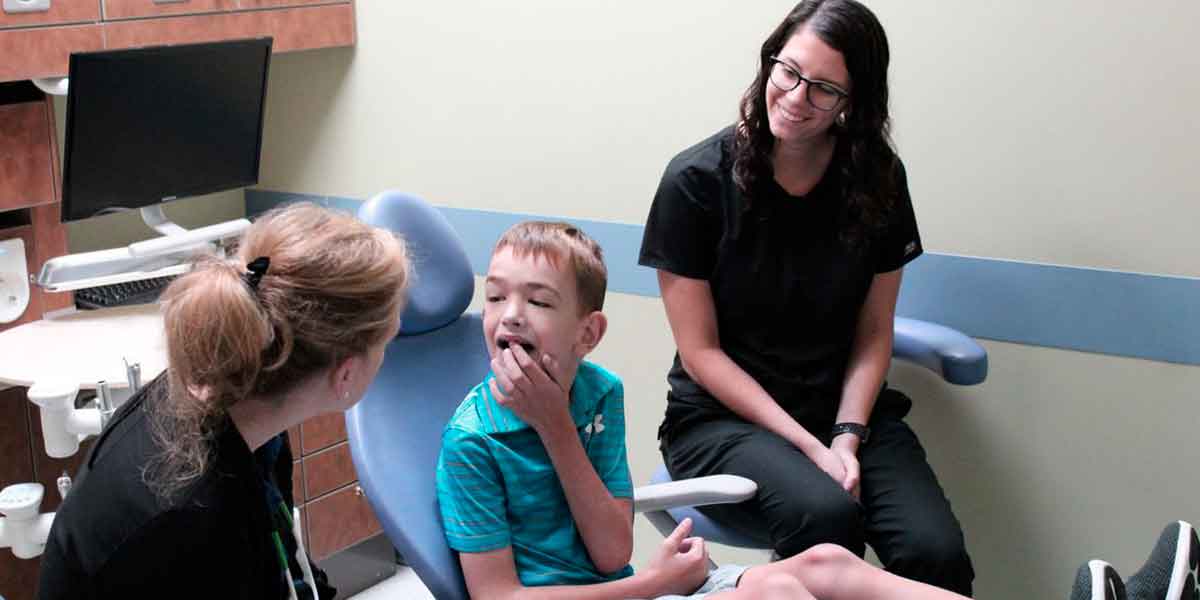Tongue tie, or ankyloglossia, is a condition present at birth that restricts the tongue’s range of motion. This condition occurs when the band of tissue (lingual frenulum) that connects the bottom of the tongue to the floor of the mouth is too short, tight, or thick. Tongue tie can interfere with breastfeeding, speech development, and oral hygiene. Pediatric dentists in Brooklyn offer various treatment options to address this condition and improve the quality of life for affected children.
Understanding Tongue Tie
Tongue tie can vary in severity, from mild cases where the tongue’s movement is slightly restricted to severe cases where the tongue’s movement is significantly limited. It is crucial to identify and address tongue ties early to prevent potential complications.
Symptoms of Tongue Tie
The symptoms of tongue tie can differ depending on the age of the child. Here are some common signs to look out for:
- Difficulty breastfeeding or bottle feeding
- Inability to stick out the tongue past the lower front teeth
- Trouble lifting the tongue to the upper teeth
- Speech difficulties
- Gum or dental hygiene problems
Diagnosis of Tongue Tie
Diagnosis of tongue tie is typically done during a physical examination by a pediatric dentist or pediatrician. The healthcare provider will observe the movement of the tongue and assess the lingual frenulum’s appearance and functionality. In some cases, further evaluation by a speech-language pathologist may be necessary.
Treatment Options for Tongue Tie
Treatment for tongue-tie depends on the severity of the condition and the associated symptoms. The primary goal is to improve tongue mobility and function, which can be achieved through various methods.
Frenotomy
Frenotomy is a simple and quick procedure often performed in infants. It involves snipping the lingual frenulum to release the tongue. This procedure is usually done with a sterile pair of scissors and can be completed in a few minutes. The recovery is rapid; babies can often breastfeed immediately after the procedure.
Advantages of Frenotomy
- Quick and minimally invasive
- Immediate improvement in tongue mobility
- Minimal discomfort and fast recovery
Considerations for Frenotomy
- Possible bleeding during the procedure
- Rare risk of infection
- May require follow-up to ensure proper healing
Frenuloplasty
Frenuloplasty is a more comprehensive procedure usually recommended for older children or severe cases of tongue tie. It involves making a more extensive incision in the lingual frenulum and may require sutures to close the wound. Frenuloplasty is typically performed under general anesthesia to ensure the child is comfortable and still during the procedure.
Advantages of Frenuloplasty
- Effective for severe cases of tongue tie
- Provides greater improvement in tongue function
- Can correct associated speech issues
Considerations for Frenuloplasty
- Requires general anesthesia
- Longer recovery time compared to frenotomy
- Higher cost due to the complexity of the procedure
Post-Treatment Care
After a tongue-tie procedure, proper care is essential to ensure successful healing and optimal results. Here are some post-treatment care tips:
- Follow the dentist’s or surgeon’s instructions regarding feeding and oral care.
- Perform tongue exercises as recommended to improve mobility.
- Monitor the healing process and watch for signs of infection, such as redness, swelling, or discharge.
- Schedule follow-up appointments to ensure proper healing and functionality.
Benefits of Early Tongue Tie Treatment
Treating tongue tie early can prevent potential complications and improve the child’s quality of life. Here are some benefits of early treatment:
Improved Breastfeeding
Addressing tongue tie can help improve the baby’s latch and sucking efficiency, leading to better breastfeeding outcomes. This can reduce frustration for both the baby and the mother and ensure the baby receives adequate nutrition.
Enhanced Speech Development
Tongue tie can interfere with speech development by restricting the tongue’s movement. Early treatment can help prevent speech difficulties and improve articulation, making communication easier for children.
Better Oral Hygiene
A functional tongue plays a crucial role in maintaining oral hygiene by helping to clear food particles and bacteria from the mouth. Treating tongue tie can promote better oral hygiene and reduce the risk of dental issues such as cavities and gum disease.
Increased Comfort
Tongue tie can cause discomfort or pain when performing activities that require tongue movement, such as eating and speaking. Treatment can alleviate these issues and make daily activities more comfortable for the child.
Choosing the Right Pediatric Dentist in Brooklyn
Choosing a qualified and experienced pediatric dentist is essential when considering tongue tie treatment for your child. Here are some tips to help you find the right specialist in Brooklyn:
Check Credentials and Experience
Ensure that the pediatric dentist has the necessary credentials and experience in tongue-tying treatments. Look for board certification and specialized training in pediatric dentistry.
Read Reviews and Testimonials
Reviewing and testimonials from other parents can provide insights into the dentist’s expertise and patient care quality. Look for feedback on the dentist’s approach to treatment, bedside manner, and overall experience.
Schedule a Consultation
Schedule a consultation with the pediatric dentist to discuss your child’s condition and the available treatment options. Use this opportunity to ask questions and gauge your comfort level with the dentist and their approach.
Consider the Clinic Environment
A child-friendly clinic environment can make a significant difference in your child’s comfort and overall experience. Look for a clinic that offers a welcoming atmosphere and amenities designed to put children at ease.
Conclusion
Tongue tie treatment is an essential consideration for children with restricted tongue movement. Addressing this condition early can improve breastfeeding, speech development, and overall oral hygiene. By choosing an experienced pediatric dentist in Brooklyn, you can ensure your child receives the best possible care and achieve optimal results. Consult with a pediatric dentist today to explore the treatment options available for your child’s tongue tie.




